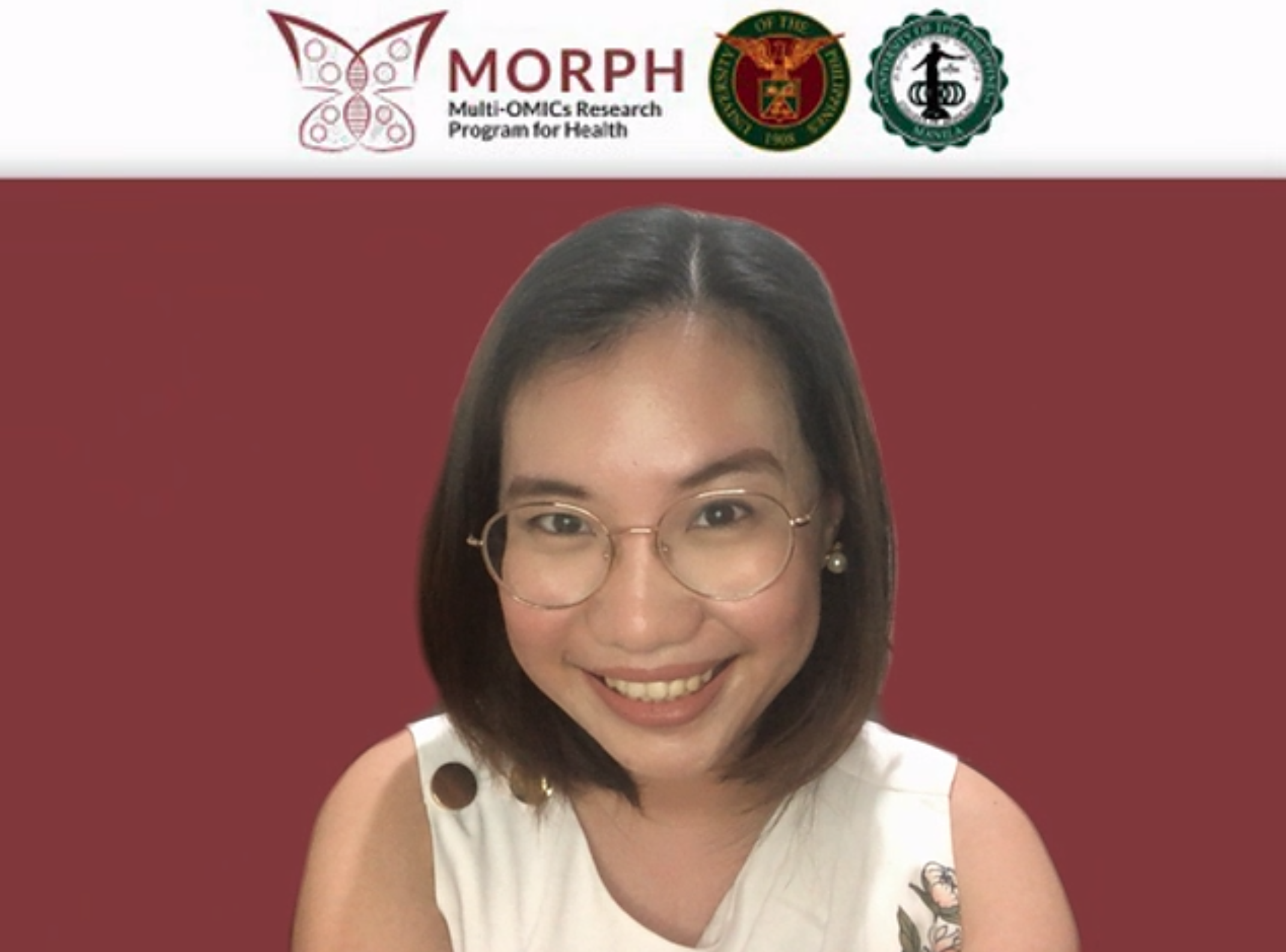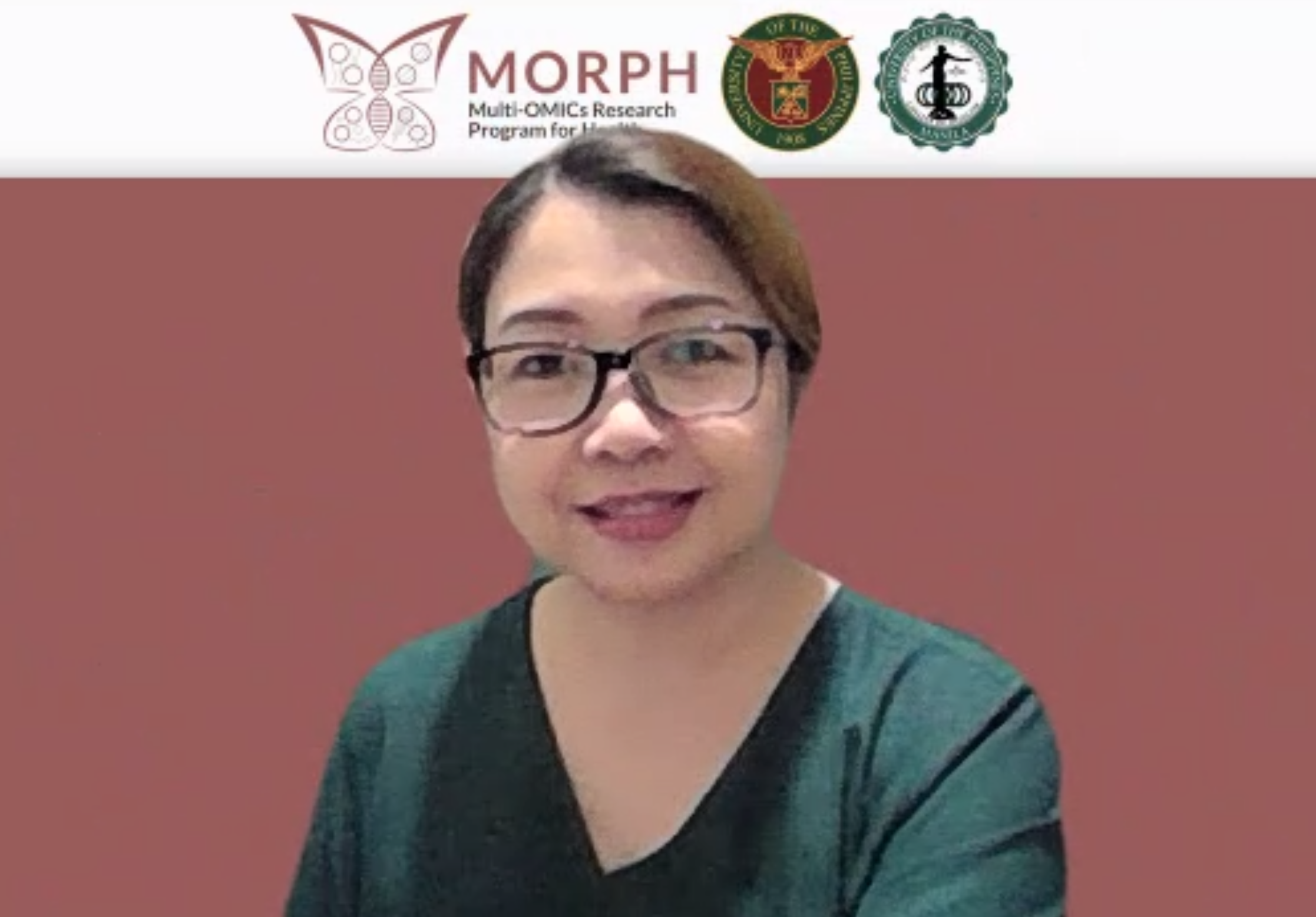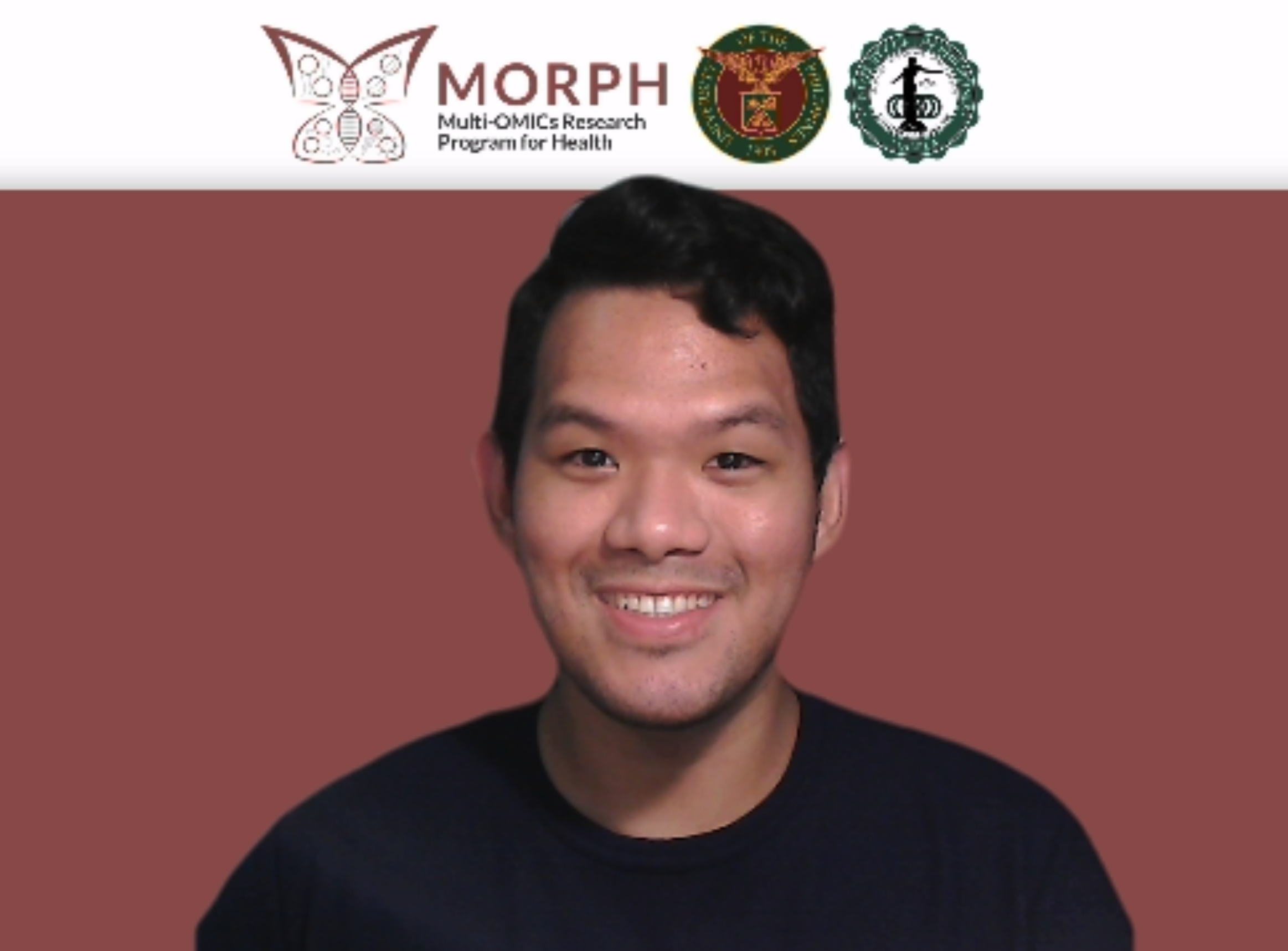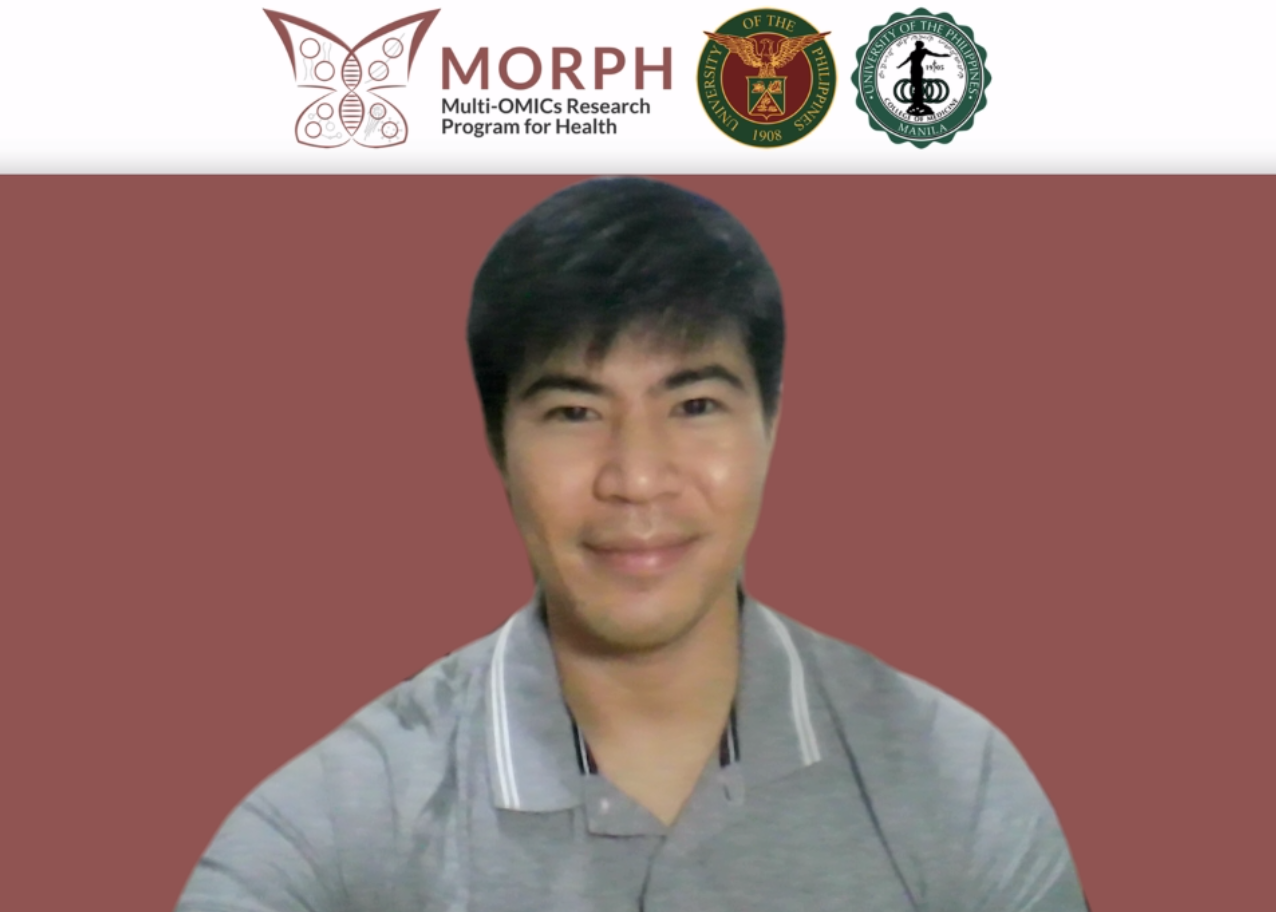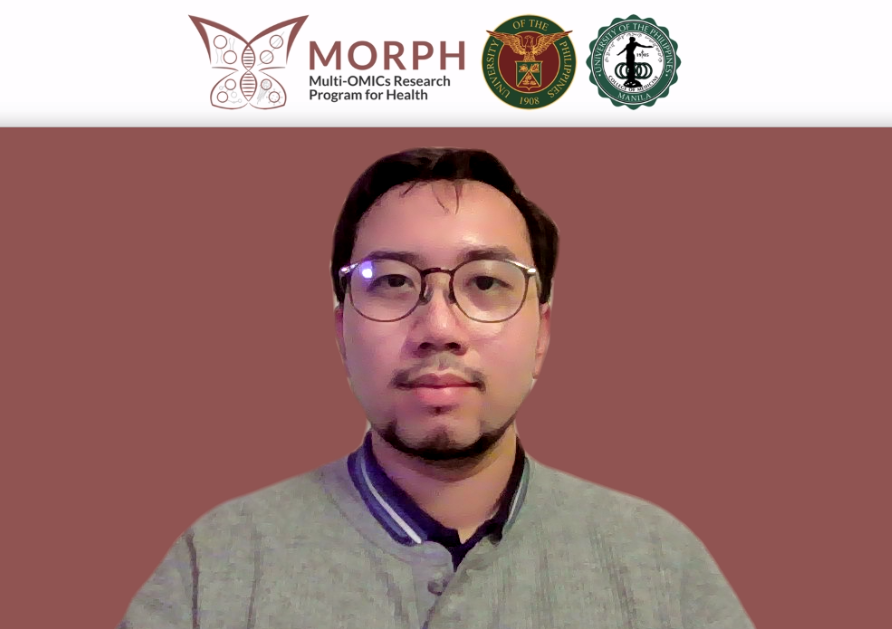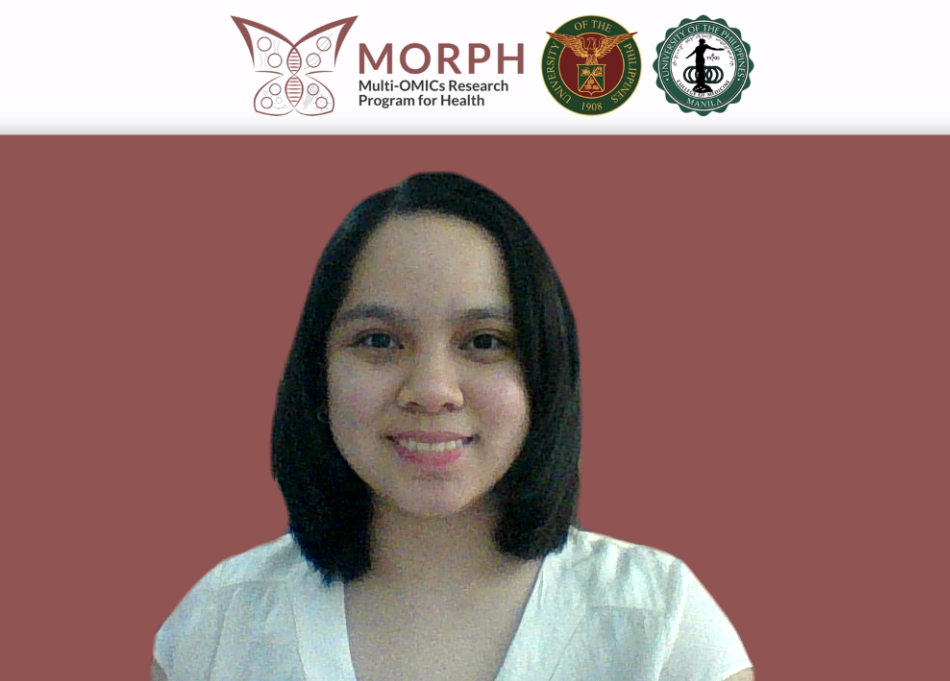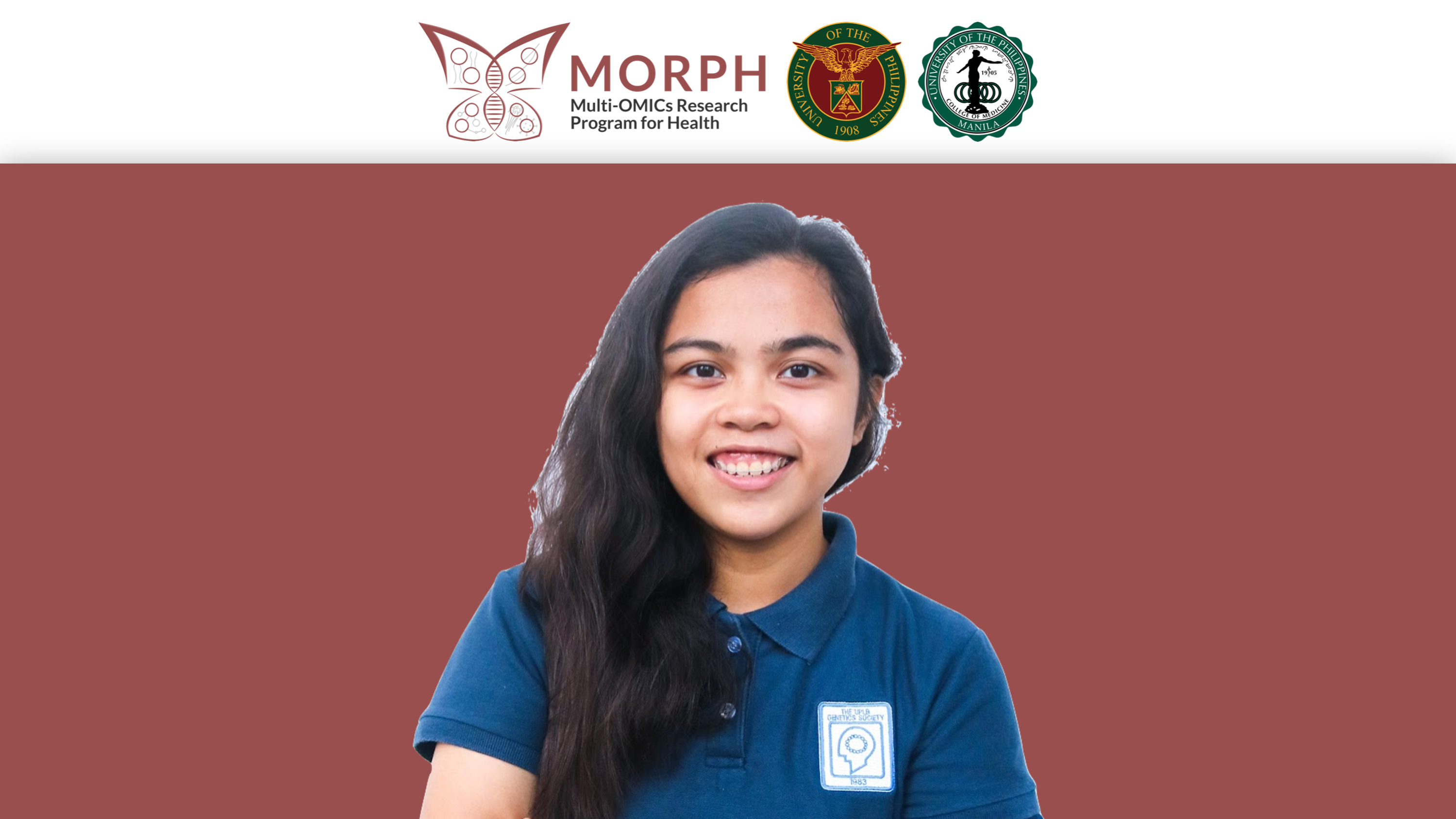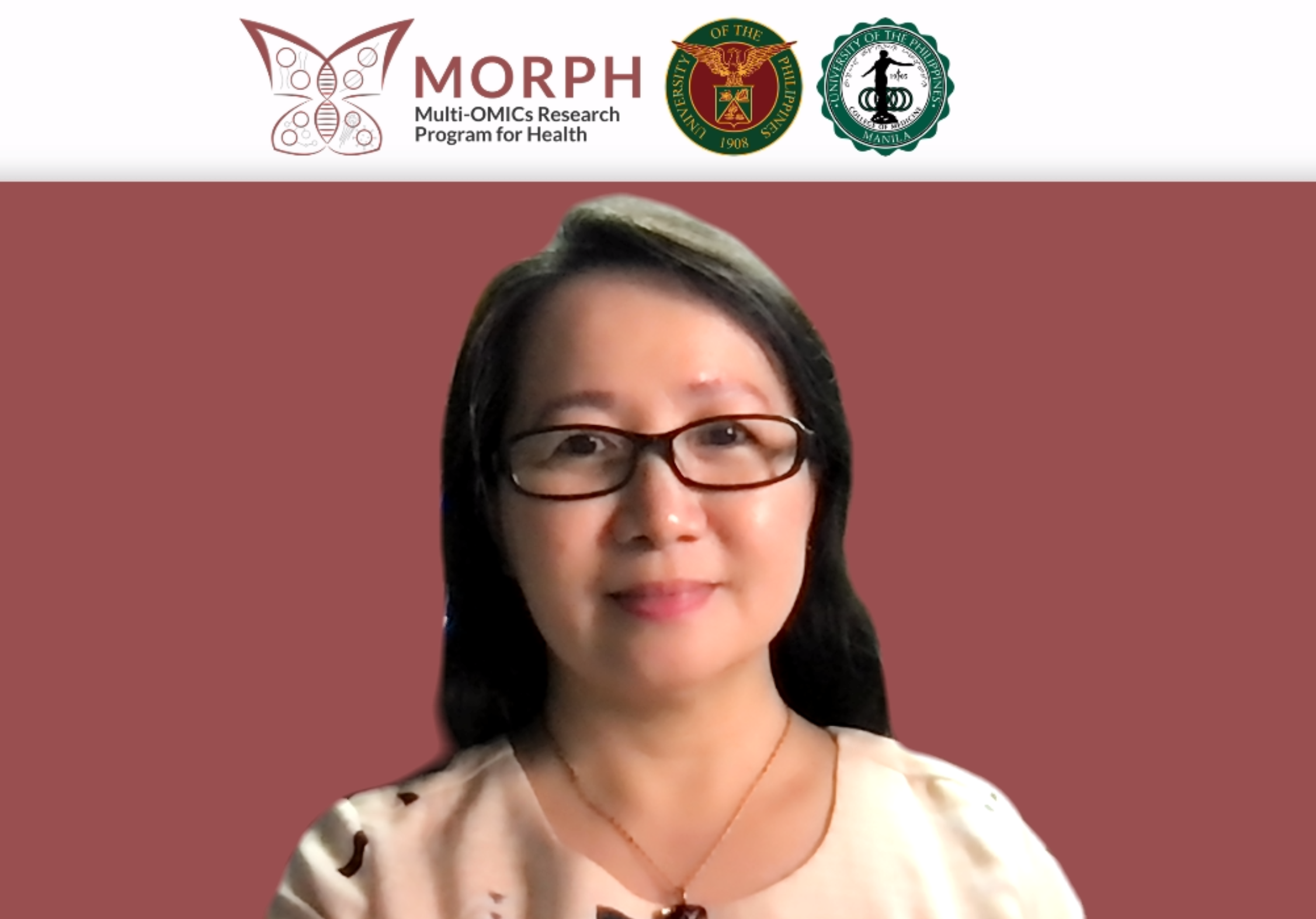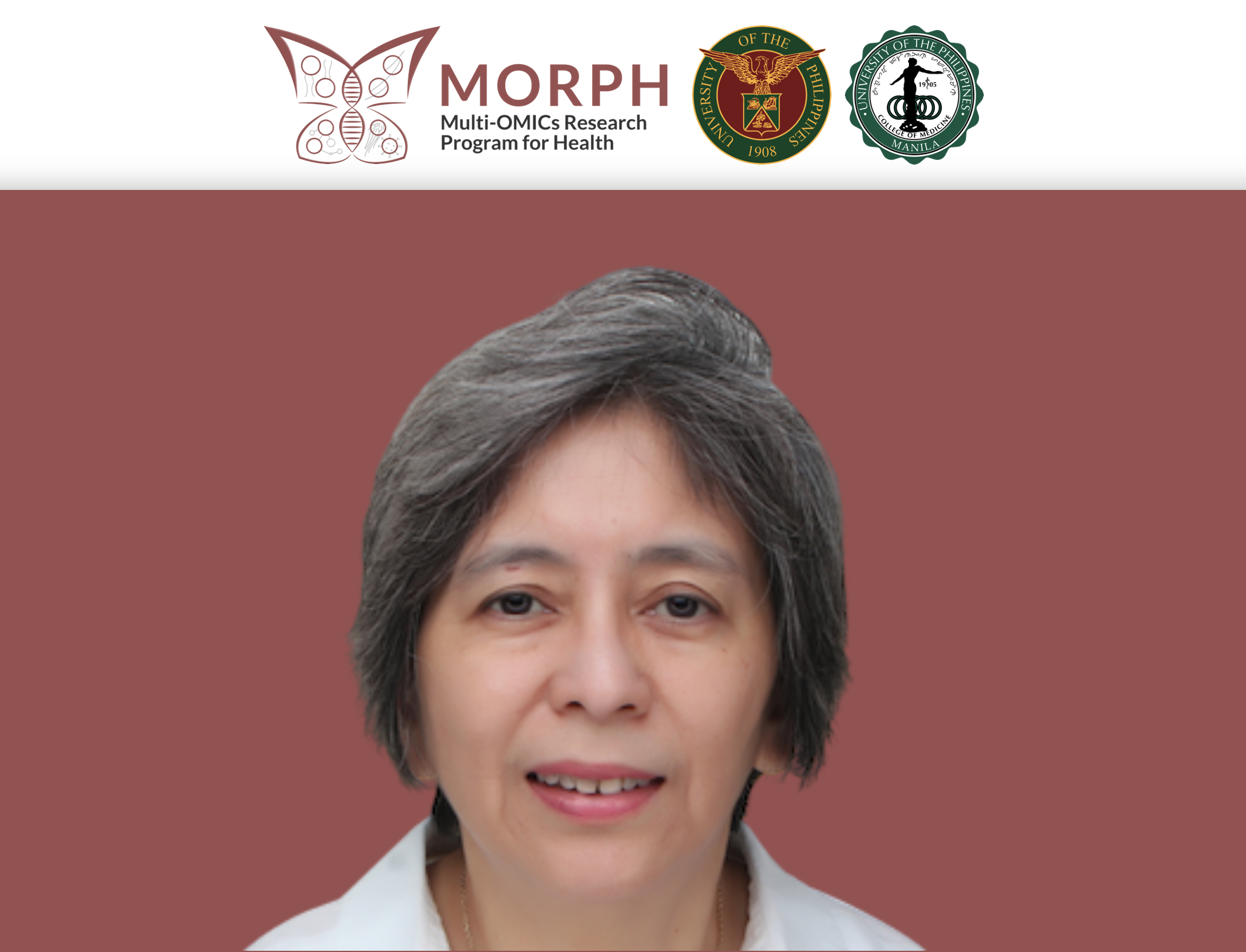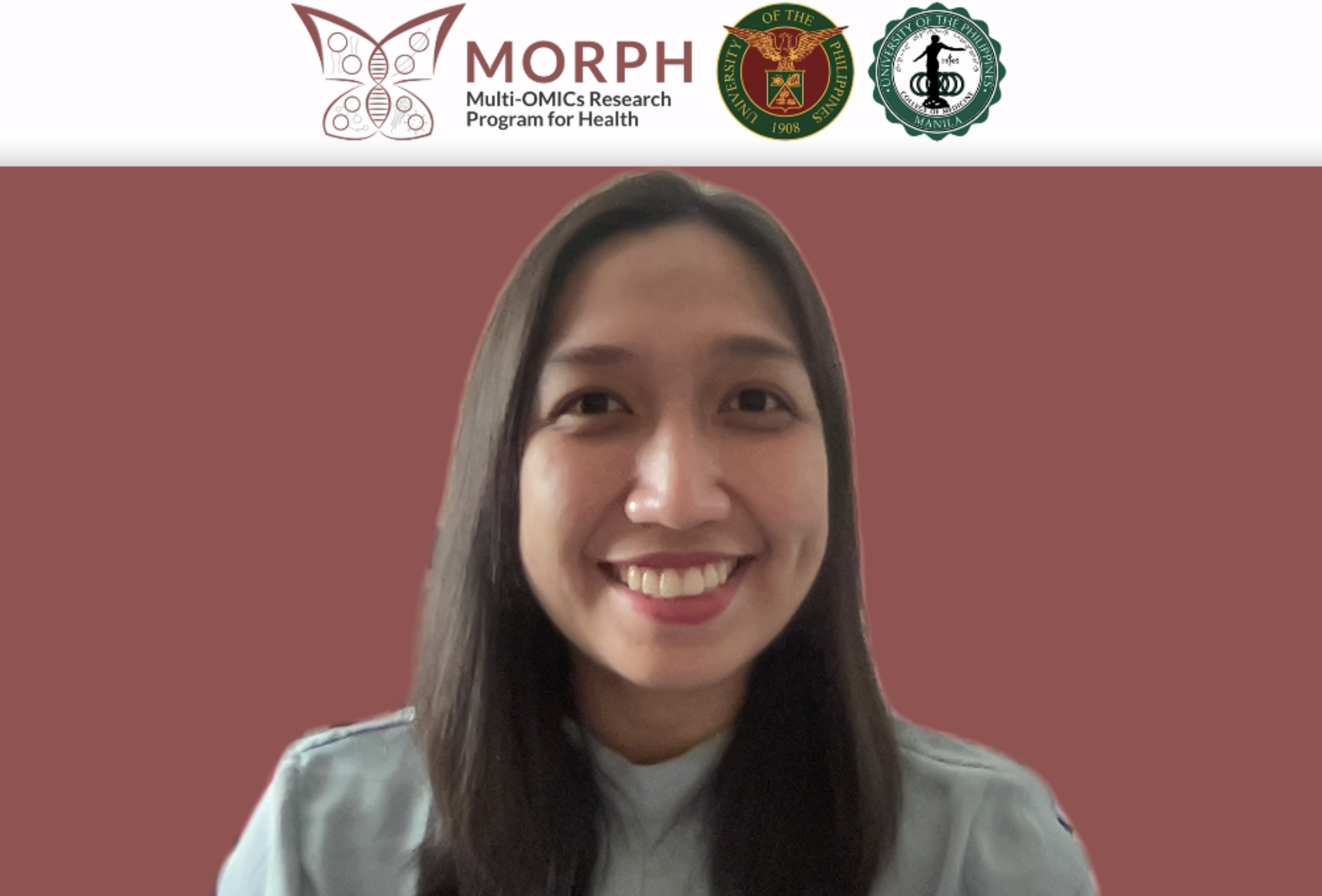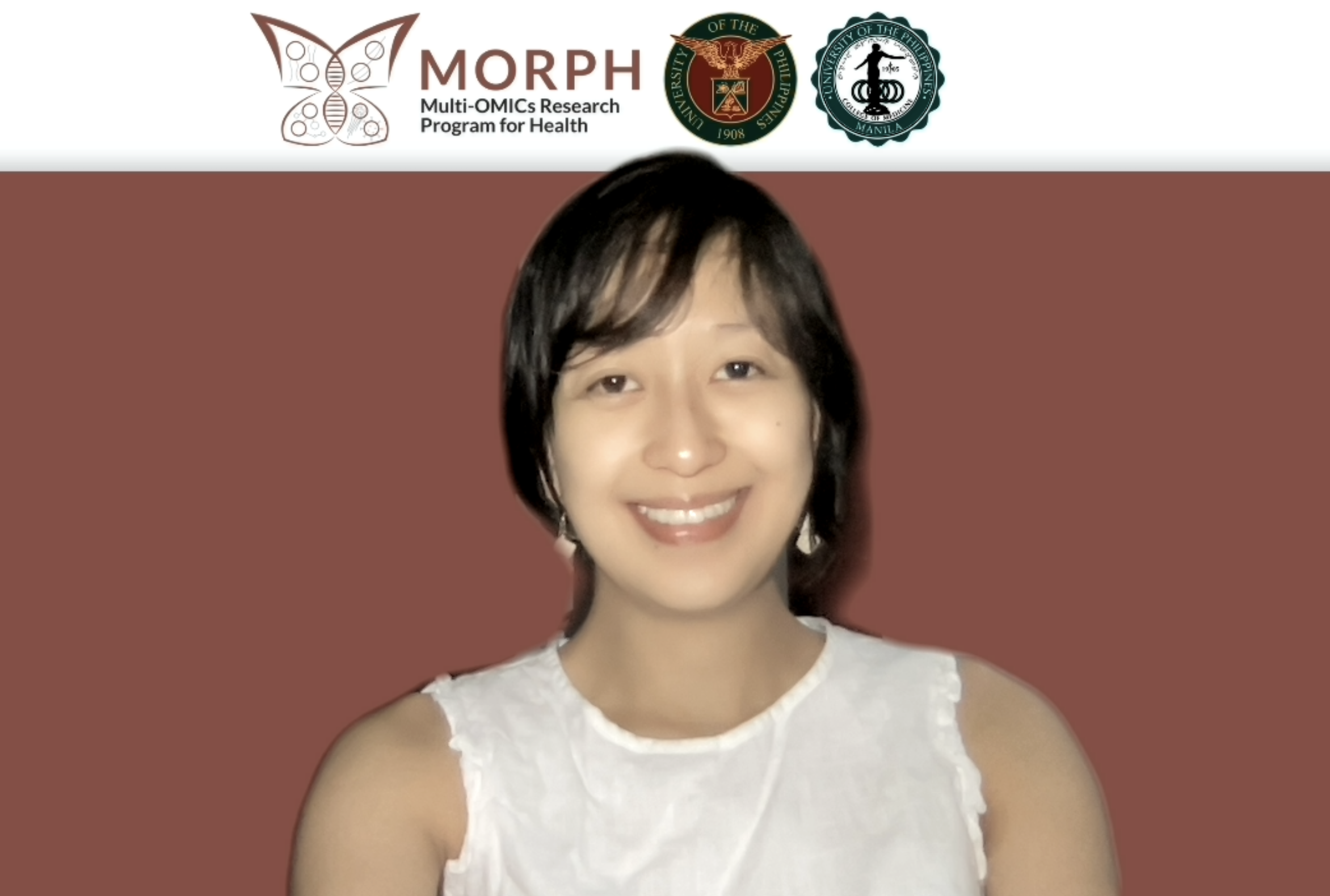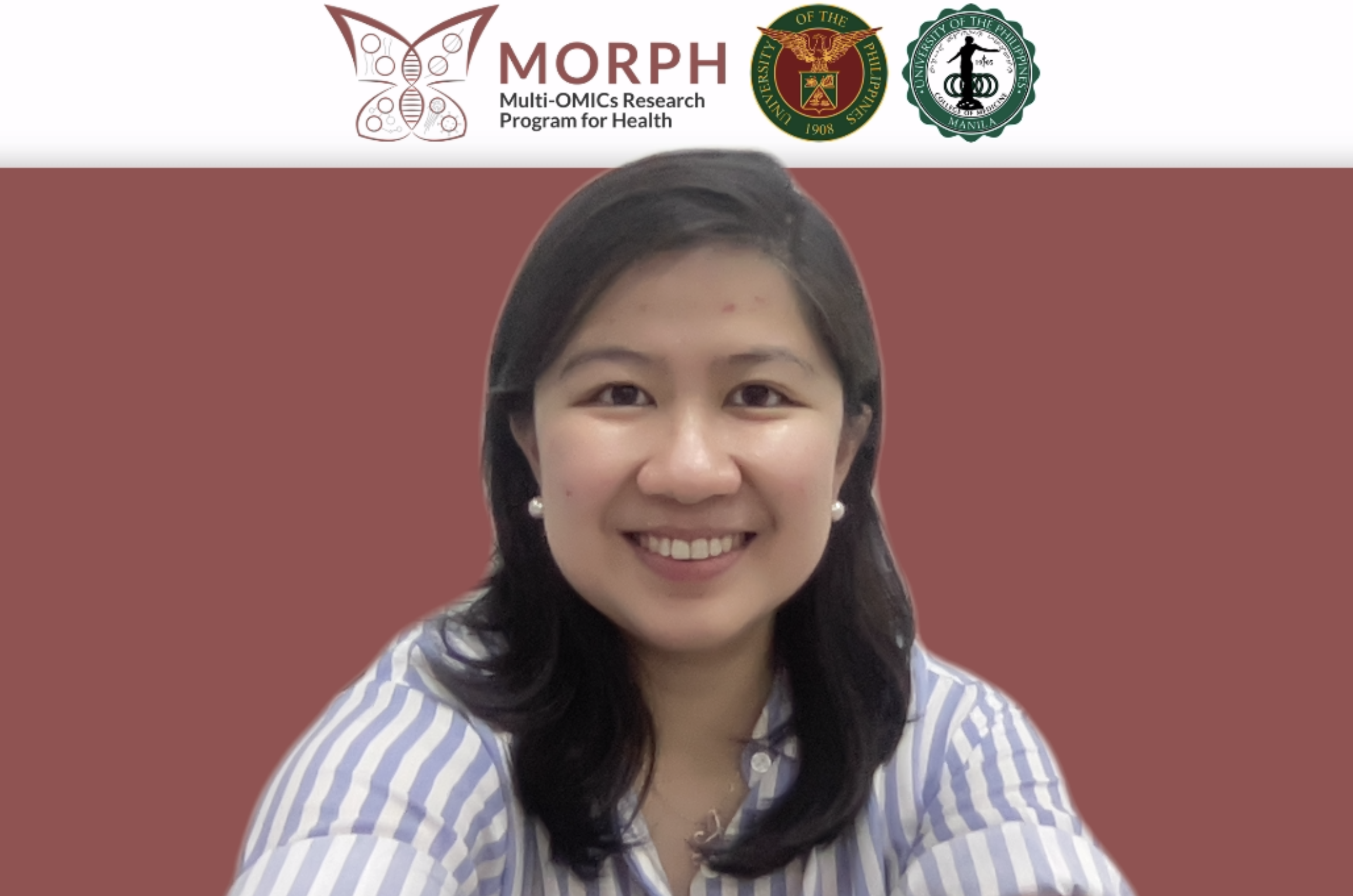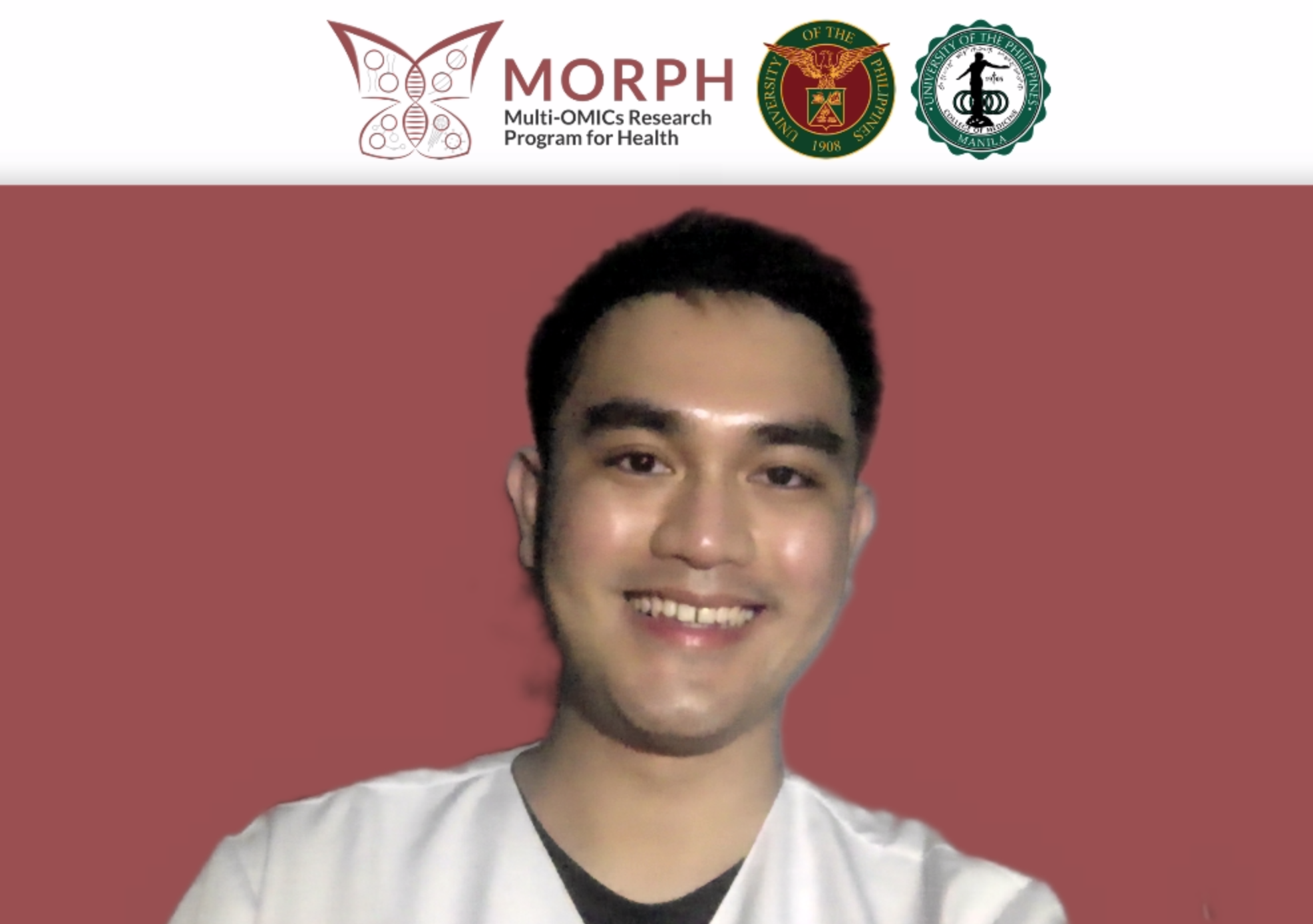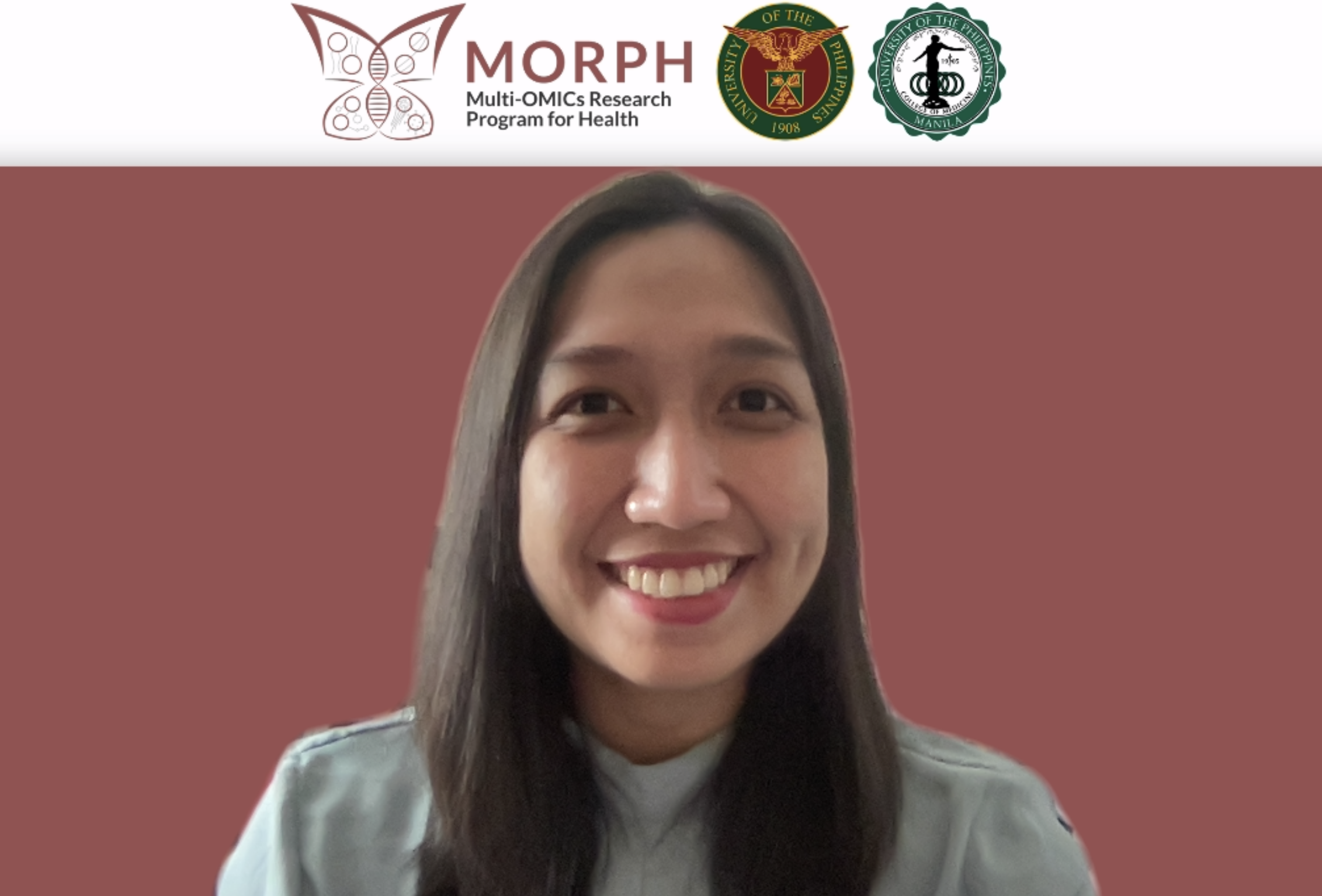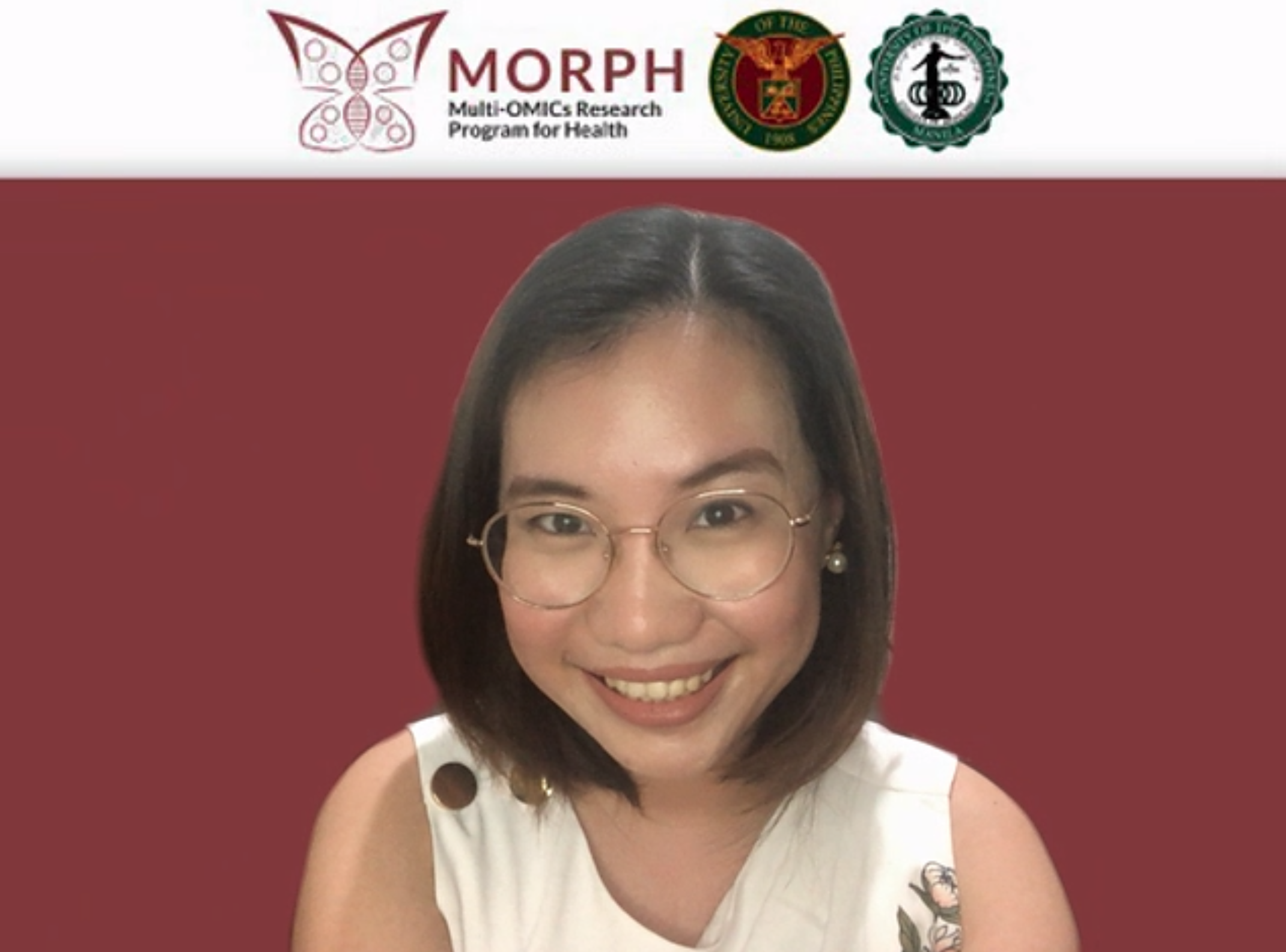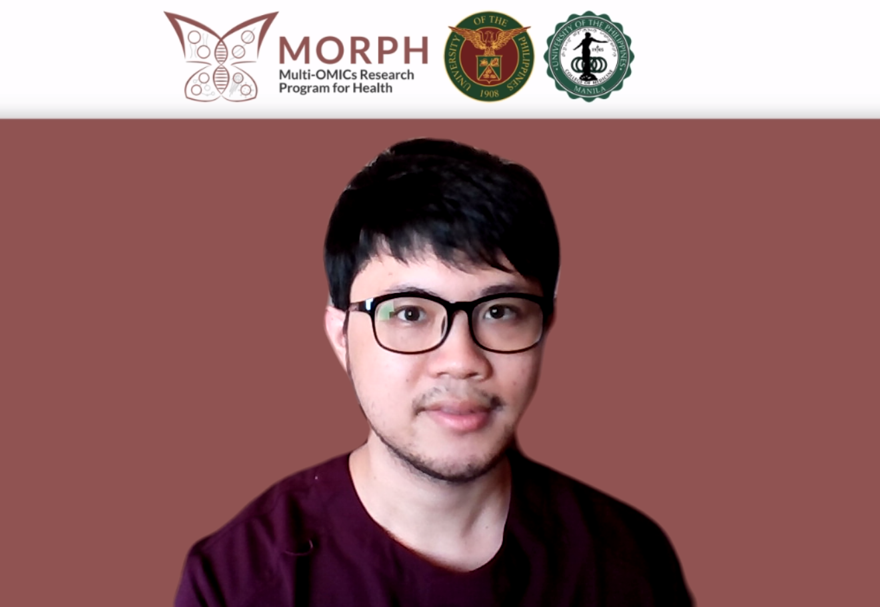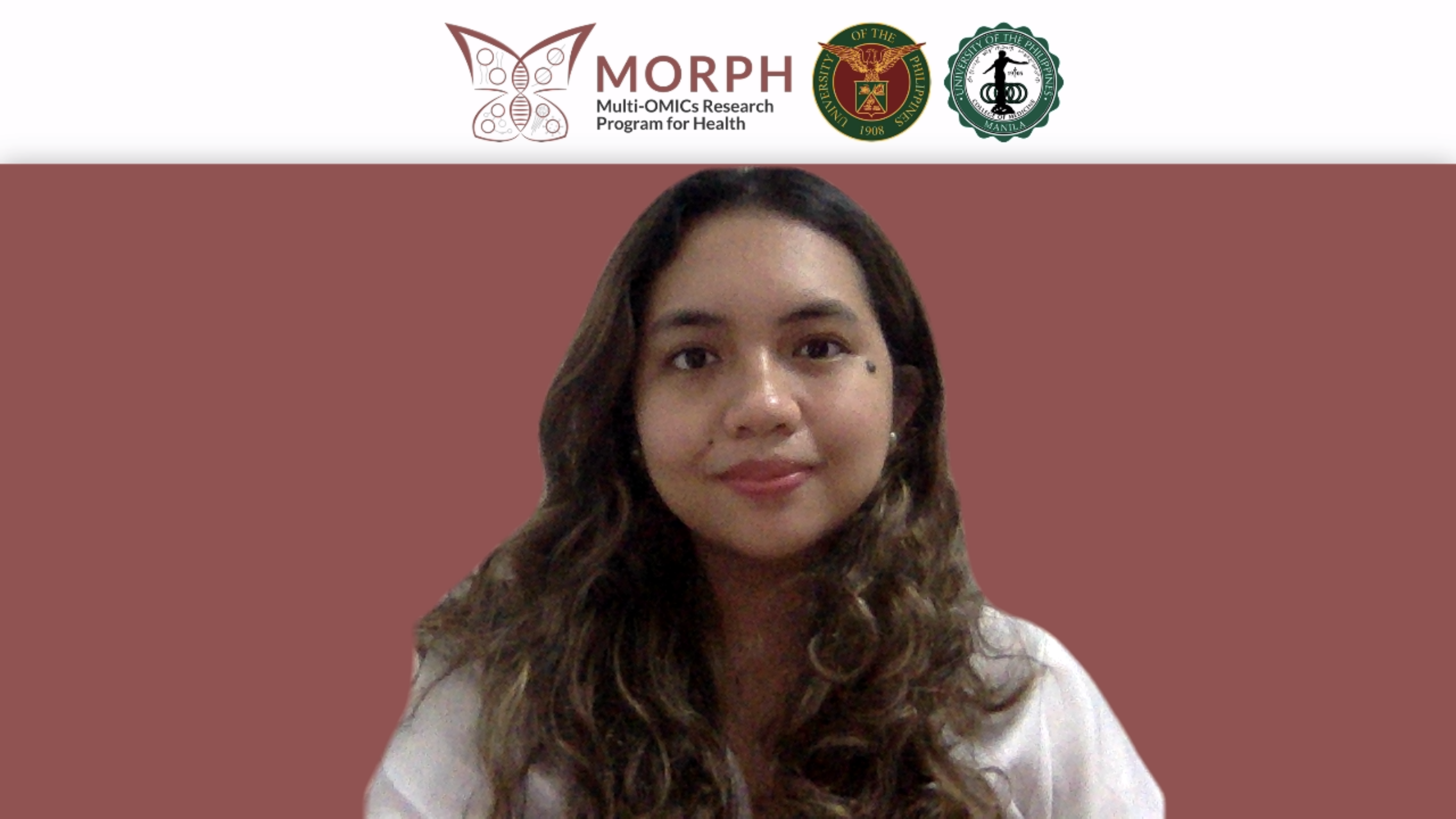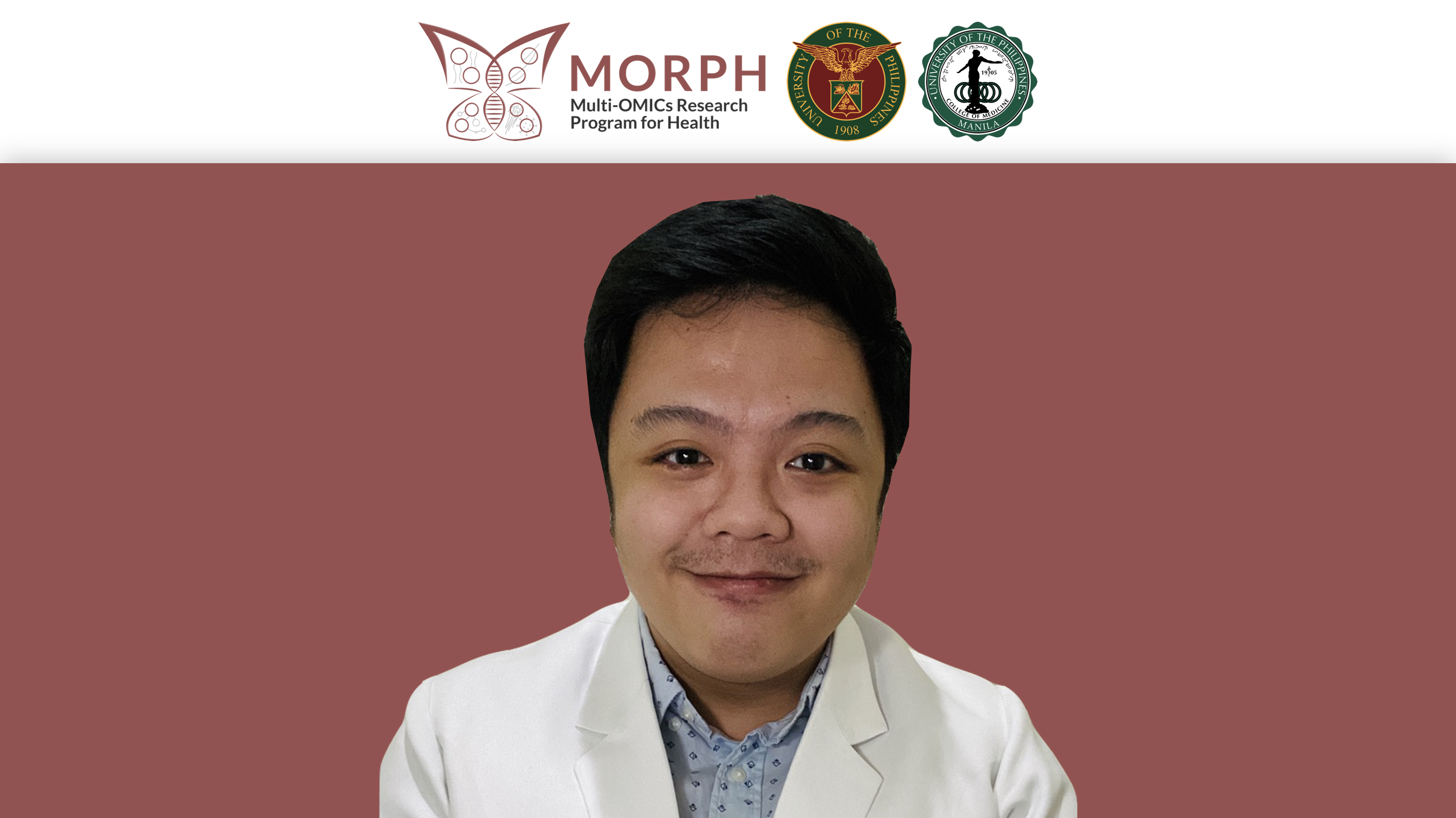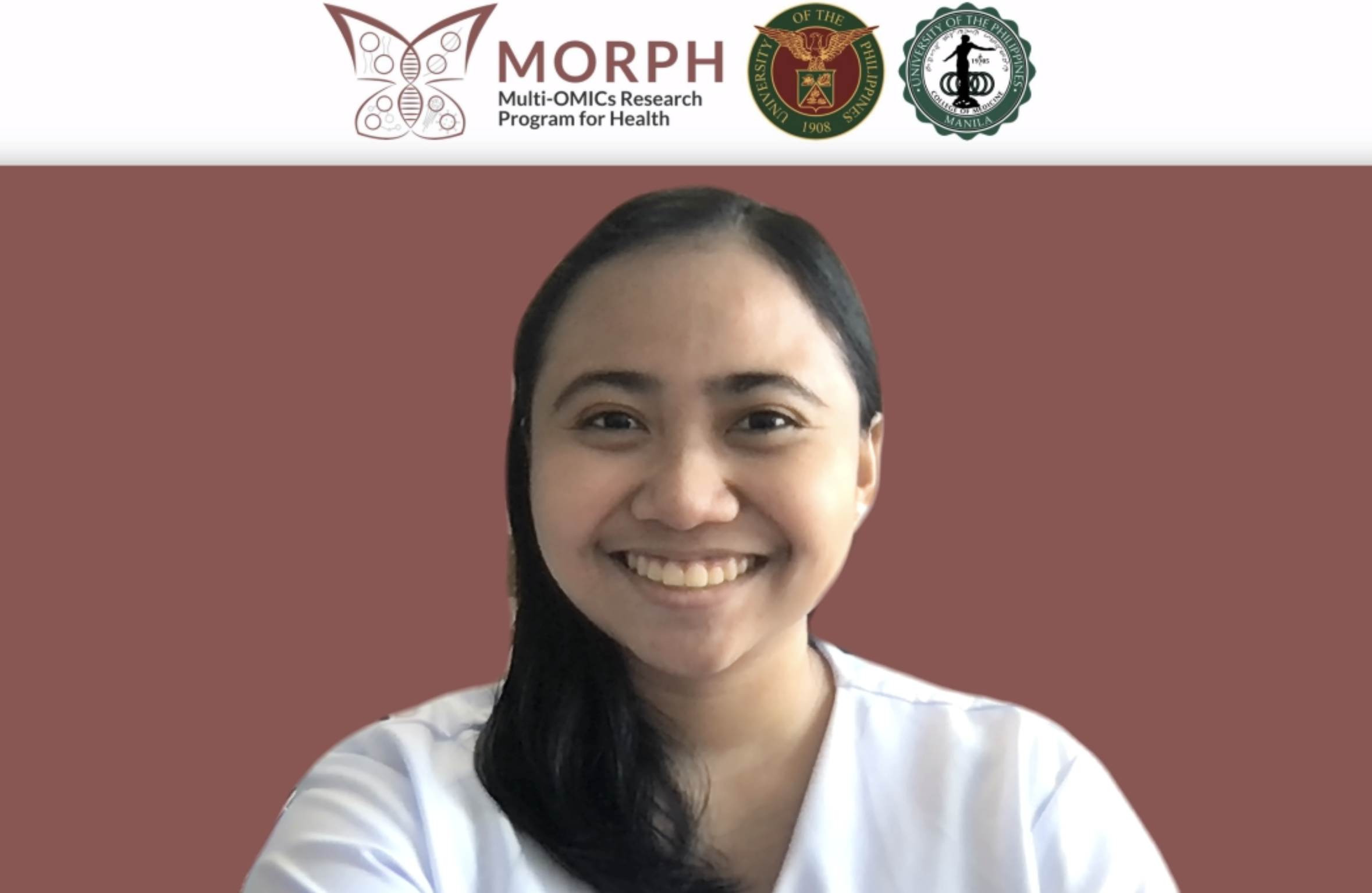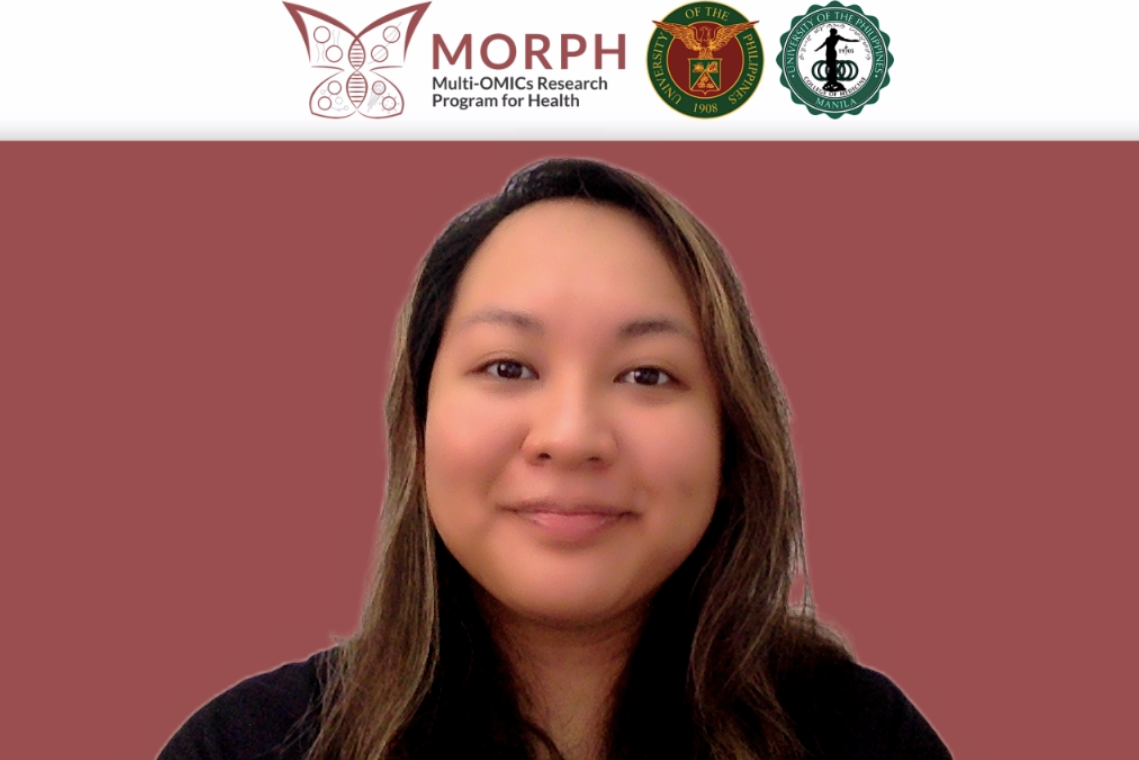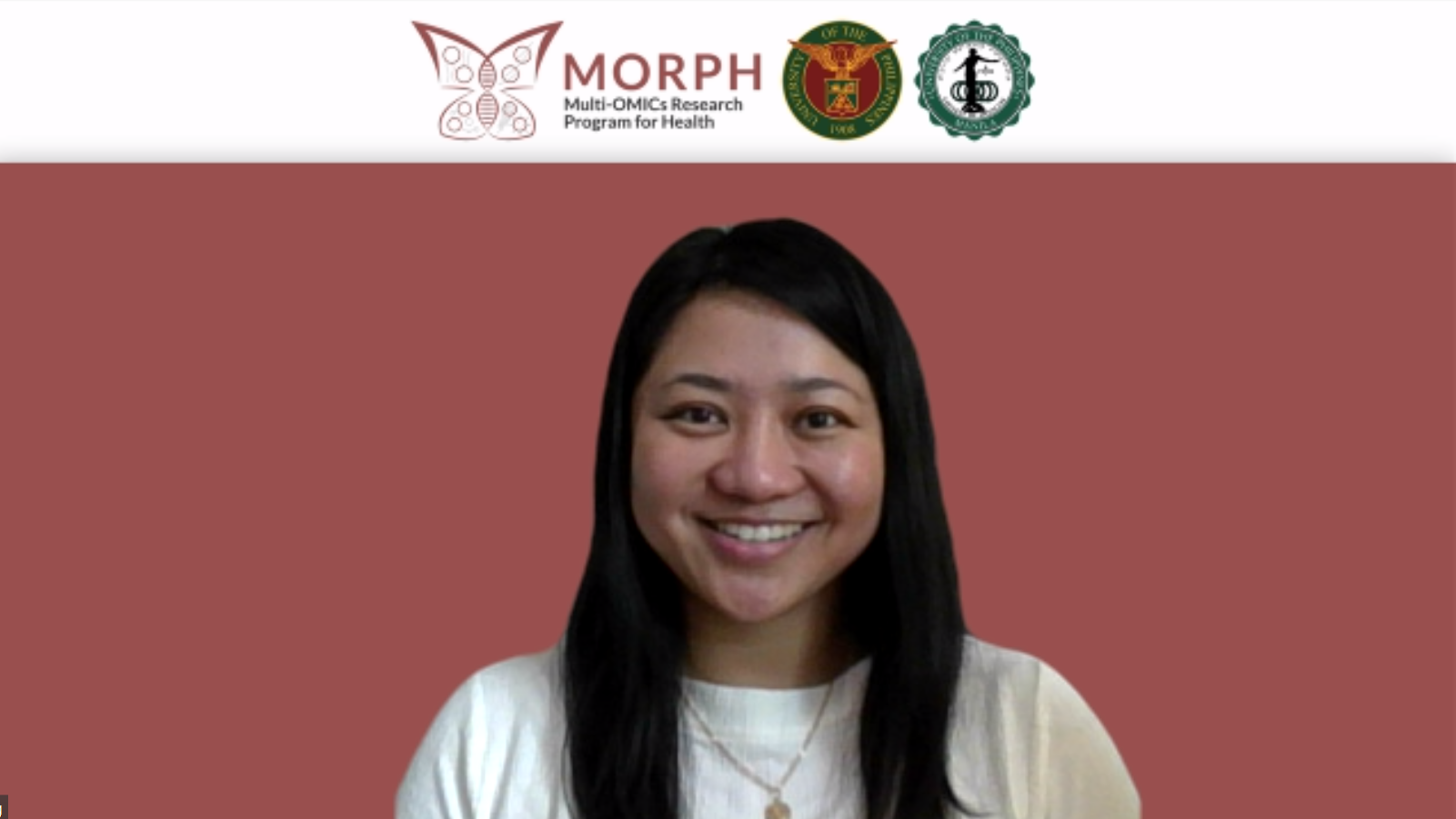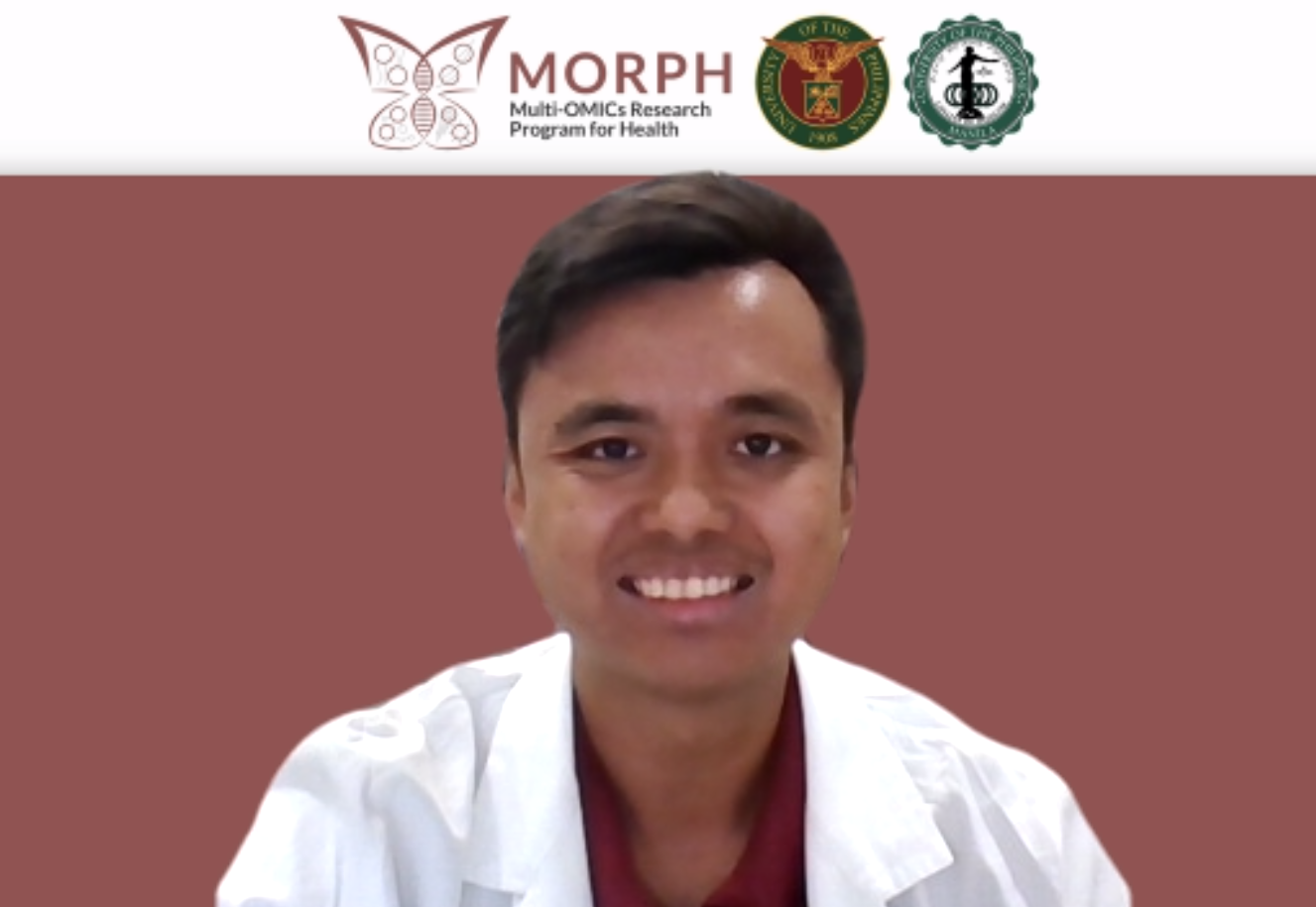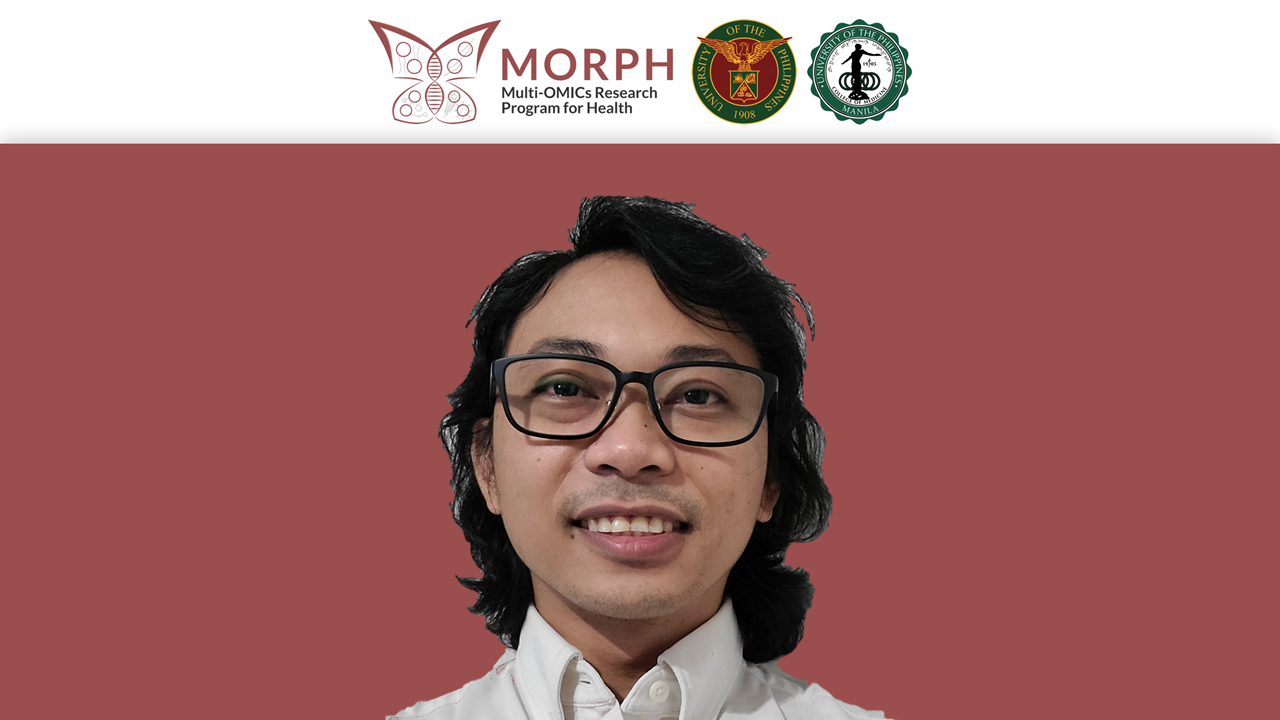Introduction
The battle with human diseases is never-ending as many non-communicable illnesses have no successful cure and infectious agents are still evolving and emerging. To address the pressing health problems affecting Filipinos, the MD-PhD in Molecular Medicine program established the Multi-Omics Research Program for Health (MORPH).
MORPH aims to harness the use of Omics technology to elucidate and understand the molecular basis and mechanisms associated with diseases prevalent in the country through molecular epidemiology, identification of biomarkers (metabolites, genes, transcripts and proteins), analysis of microbial communities (microbiome), and pharmacogenetic studies. The program addresses the need to promote translational health research through its four proponent projects which tackle Alzheimer’s disease, co-infection of Human Immunodeficiency Virus and tuberculosis (HIV/TB), thyroid carcinoma and Human Papilloma Virus (HPV).
The program will potentially produce thyroid cancer biomarkers, pharmacogenetic and microbial biomarkers in Alzheimer’s disease, and prevalence of TB and HPV genotype. These data can assist clinicians and pharmaceutical companies in the development of practice guidelines and new therapies, respectively. It will also open up biobanking possibilities that can be a rich source of samples and information for future health research.
Lastly, MORPH aims to strengthen the collaboration between the UP College of Medicine, Philippine General Hospital (PGH), the UP Manila National Institutes of Health (UPM-NIH) and the Philippine Genome Center (PGC) to cater to the research needs of the MD-PhD graduates and students.
Program Paradigm (Pending)
Our Team
The MORPH is composed of MD-PhD (Molecular Medicine) graduates, faculty and students whose vision is to promote basic yet advanced health research for the benefit of the Filipino people. The graduates of the MD-PhD program act as project leaders, with MD-PhD students working under their respective projects. This will provide an opportunity for the MD-PhD graduates to mentor their peers in training, as well as to embark in research leadership roles. Moreover, the project leaders are in direct collaboration with various clinicians as co-investigators. Through MORPH, physician-scientists can then bridge the gap between basic science research and its applicability to the clinical setting.
Contact Us
Leslie Michelle M. Dalmacio, PhD
Program Leader
morph.upcm@up.edu.ph
Short Title of Project
MEMORI-AD
Project Title
Monitoring drug Efficacy through Multi-Omics Research Initiative in Alzheimer’s Disease
(MEMORI-AD)
Summary
In the Philippines, it is estimated that 10.6% of Filipinos aged 60 years and above have dementia, with 85.5% eventually being diagnosed as Alzheimer’s disease (AD) (Dominguez et al., 2018). This indicates a pressing need to address neurodegenerative diseases and other non-communicable diseases in the country. Recommended drugs have been established for dementia - some being acetylcholinesterase inhibitors like rivastigmine, donepezil and galantamine as monotherapy or combined with memantine for moderate and severe AD (Farlow and Cummings 2007).
There is currently no available study demonstrating the clinical effects of recommended drugs for AD in the Filipino population. Hence, neither drug response nor adverse effects of Filipino AD patients are known. In addition, while the gut-brain axis relationship is well established, there is paucity of data on this from current clinical studies in the local setting. Knowing which drugs are effective for Filipinos and which are associated with less adverse events are essential to maximize cost-effectivity and improve the quality of life of patients. Knowing how drug intake affects gut flora, and how flora affects AD or drug response are also essential in the application of modern knowledge in neurology: the gut-brain axis and how they affect each other, and especially how such interactions are observed in Filipino AD patients. This can help us understand how gut flora affects cognition, and may open additional avenues for drug discovery in the future.
With the recently enacted Mental Health Act (RA 11036), these information are of importance to develop locally-relevant clinical management for Filipinos afflicted with AD. In this descriptive, prospective cohort study, drug response of Filipino patients newly diagnosed with AD will be investigated employing innovative multiOMICs technology to characterize genetic variations via whole exome sequencing, gut microbiota profile by shotgun metagenomic sequencing, and metabolome profile by liquid chromatography with tandem mass spectrometry (LC-MS/MS). Through collaboration between the basic (Molecular Biology and Medical Microbiology) and clinical sciences (Adult Neurology), this study will provide evidence for the consideration of interested local medical societies primarily managing patients with AD. This project also provides an avenue for the training of clinical neurologists and young translational researchers particularly the MD-PhD in Molecular Medicine students in the conduct of precision medicine research in neurosciences to improve patient management.
Cited literature
- Dominguez, J., de Guzman, MF., Macario Jr, R., Phung, T., & Kieu T. (2018). Prevalence of dementia and associated risk factors: a population-based study in the Philippines. Journal of Alzheimer’s Disease, 63 (3): 1065-1073. doi: 10.3233/JAD-180095
- Farlow MR, Cummings JL. Effective pharmacologic management of Alzheimer's disease. Am J Med. 2007 May;120(5):388-97. doi: 10.1016/j.amjmed.2006.08.036. PMID: 17466645.
Graphical Abstract
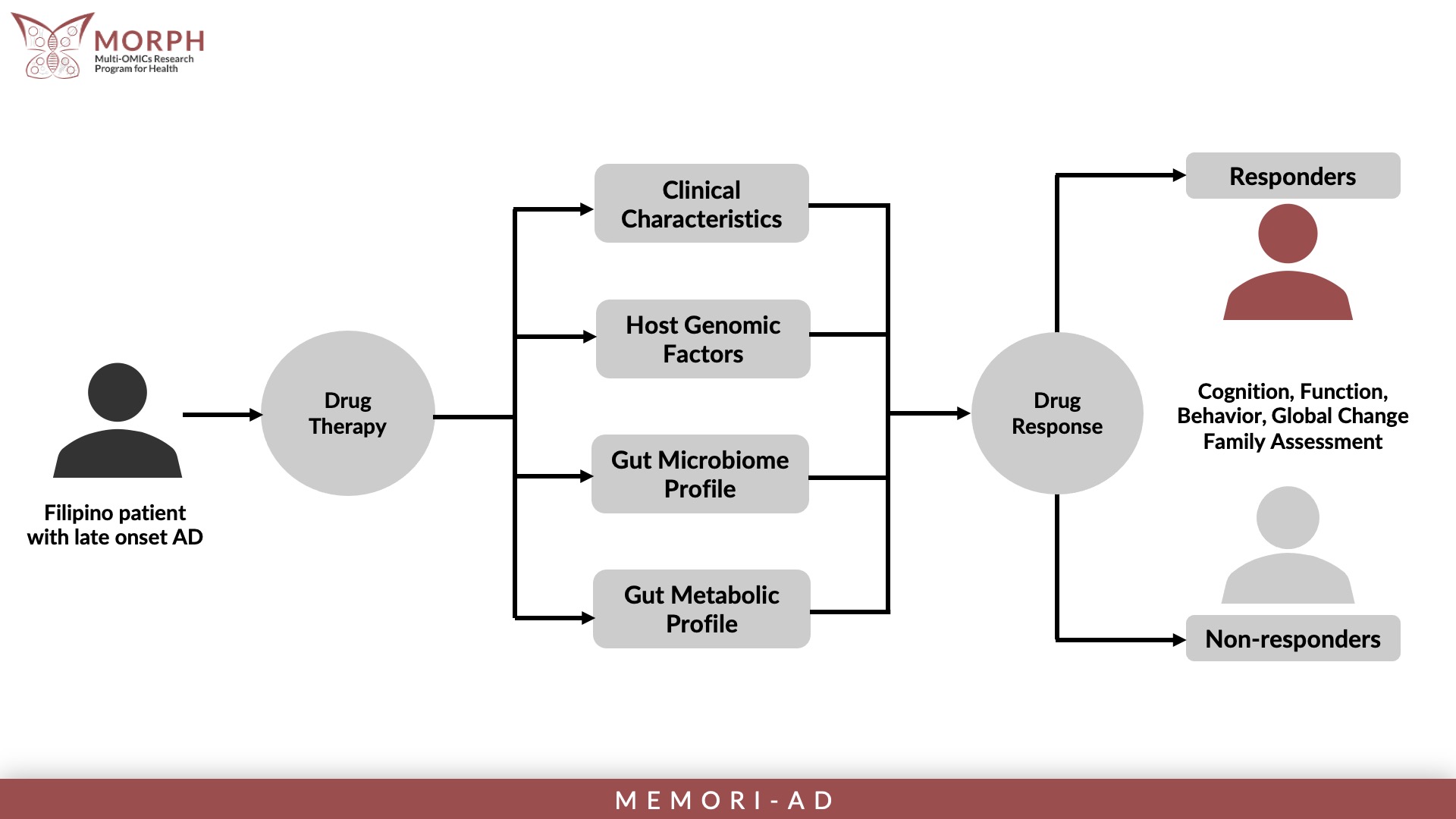
Among a cohort of Filipinos diagnosed with late onset AD, the current study will investigate the clinical, genetic, gut microbiota and gut metabolic factors, which are recognized contributory factors to an individual’s drug response or non-response status. All these are directed to maximize drug effectiveness and improve quality of life of Filipino patients with AD.
Study Period
January 1, 2022 to December 31, 2024
Collaborators
1. The Medical City
2. Cardinal Santos Medical Center
3. Philippine Genome Center
Team Members
| Members | Position | Affiliation |
|---|---|---|
|
Fresthel Monica M. Climacosa, MD, PhD |
Associate Professor 4 | College of Public Health, University of the Philippines Manila |
|
Veeda Michelle M. Anlacan, MD |
Clinical Associate Professor | Department of Neurosciences, College of Medicine and Philippine General Hospital, University of the Philippines Manila |
|
Francis James A. Gordovez, MD, PhD |
Medical Officer III | Department of Psychiatry, Philippine General Hospital |
|
Ian Kim B. Tabios, MD, PhD |
Professorial Lecturer, Research Staff | Institute of Biology, College of Science, University of the Philippines Diliman |
|
Mark Joseph M. Abaca, MD, PhD |
Medical Officer III | Department of Internal Medicine, Philippine General Hospital |
|
Rafael Vincent M. Manalo |
MD-PhD Candidate | UP College of Medicine |
|
Joana Marie C. Cruz |
MD-PhD Candidate | UP College of Medicine |
|
Rozel B. Razal |
MD-PhD Candidate | UP College of Medicine |
Contact Us
Fresthel Monica M. Climacosa, MD, PhD
Program Leader
fmclimacosa@up.edu.ph
Project Title
Molecular Epidemiology of Mycobacterium tuberculosis and Human Immunodeficiency Virus and Immunophenotyping of Adult Filipino TB/HIV Co-infected Patients
Summary
This cross-sectional prospective molecular epidemiologic study aims to determine the existing and predominant genotypes or strains of Mycobacterium tuberculosis and HIV in the adult Filipino TB/HIV co-infected patient population. It also aims to determine the prevalence of drug-resistant TB and HIV and genetic mutations associated with resistance to anti-TB and antiretroviral drugs. Findings from these can add to our understanding of the transmission dynamics of TB and HIV, which in turn, can aid in developing or improving strategies for effective prevention and control of these overlapping infectious diseases. This study also incorporates immunophenotyping to determine host immune markers in TB/HIV co-infected patients in the country.<
The project targets to recruit 85 TB/HIV co-infected patients from the Philippine General Hospital. This is the first study in the Philippines that will use whole genome sequencing for genotyping and mutation profiling of M. tuberculosis and HIV isolates, as well as immunophenotyping, in adult Filipino TB/HIV co-infected patients.<
Graphical Abstract
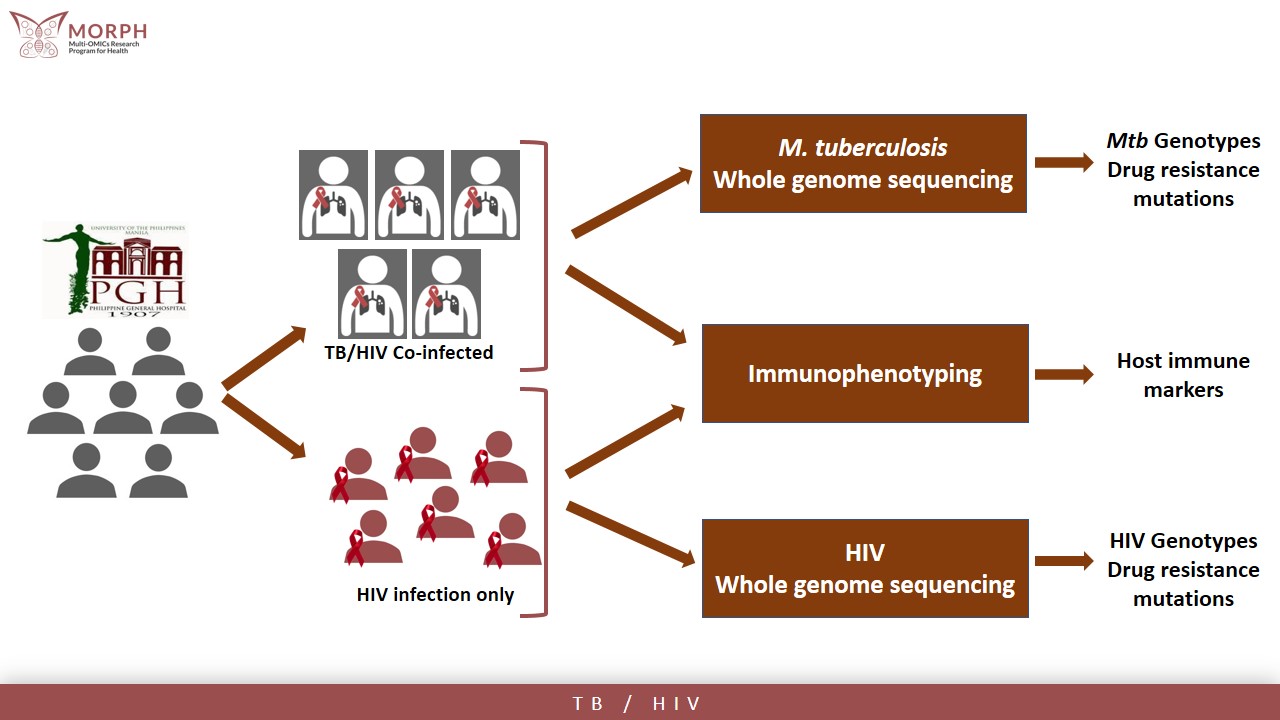
Study Period
January 1, 2022 to December 31, 2024
Collaborators
1. College of Medicine, University of the Philippines Manila
2. College of Public Health, University of the Philippines Manila
3. Center for Informatics, University of San Agustin, Iloilo
4. San Lazaro Hospital
Team Members
| Members | Position | Affiliation |
|---|---|---|
|
Leslie Michelle Dalmacio, PhD |
Professor 12 | UP College of Medicine |
|
Marissa Alejandria, MD, MSc. |
Professor | UP College of Medicine |
|
John Carlo Malabad, MD, PhD |
Assistant Scientist | Department of Science and Technology |
|
Sheriah Laine de Paz-Silava, MD, PhD |
Associate Professor | UP College of Public Health |
|
Ana Joy Padua, MD, PhD |
Supervising Science Research Specialist | UP College of Medicine |
|
Pia Regina Fatima Zamora, MD, PhD |
Supervising Science Research Specialist | Center for Informatics, University of San Agustin, Iloilo |
|
Jonnel Poblete, MD, PhD |
Medical Officer III | Philippine General Hospital |
|
Annavi Marie Villanueva, MD, PhD |
Medical Specialist II | San Lazaro Hospital |
|
Mary Nicole I. Grecia, RND |
MD-PhD Candidate | UP College of Medicine |
|
Michael Roy Vencer Malaluan, RMT |
MD-PhD Candidate | UP College of Medicine |
|
Thea Coleen F. Sanico |
MD-PhD Student | UP College of Medicine |
|
Scott Dean P. De Sagon |
MD-PhD Candidate | UP College of Medicine |
|
Treena Rica D. Teh |
MD-PhD Candidate | UP College of Medicine |
|
John Joseph R. Chua, RND |
MD-PhD Candidate | UP College of Medicine |
Contact Us
John Carlo Malabad, MD, PhD
Co-Investigator
jmmalabad@up.edu.ph
Project Title
Determinants of acquisition, persistence, and clearance of oncogenic cervical human papillomavirus infection in a cohort of women in rural and urban Philippines using a multi-OMICS approach (DEFEAT HPV)
Summary
Human papillomavirus (HPV) infection is one of the most studied risk factors for cervical cancer, the second most common cause of cancer-related death among Filipino women. However, population-based epidemiological data on cervical HPV in most parts of the Philippines remains unknown. In addition, local reports on co-infections with other lower genital tract pathogens, which are commonly reported globally, are lacking.
DEFEAT HPV aims to determine the molecular epidemiology and natural history of HPV infection among reproductive-aged Filipino women using a community-based prospective cohort design. Cervicovaginal swabs will be collected from all screened participants coming from both urban and rural sites. For positive swabs, the HPV genotypes will be determined. To determine HPV clearance, persistence, and/or acquisition, a subset of cases and controls will be followed up after 6 and 12 months for repeat HPV screening. Metagenomic and metabolomic analysis of the cervicovaginal swabs will also be done at baseline and after 6 months.
Determining the HPV genotype and distribution among the general population can help in addressing the gap in the knowledge of the epidemiology of HPV in the Philippines. The molecular epidemiology of HPV genotype distribution is essential to estimate the potential impact of prophylactic HPV vaccination, and to assess the importance of HPV testing-based cervical screening. DEFEAT HPV will update the prevalence and genotypic distribution of HPV infection among Filipino women of reproductive age, which can determine whether available vaccines in the HPV vaccination program in the Philippines captures the most prevalent high-risk HPV genotypes in the country. In addition, this study will also identify cervicovaginal community state types and bacterial taxa associated with different infection statuses of HPV. This can be used in developing a biomarker that can help predict the risk of developing persistent HPV infection and cervical cancer in Filipino women.
Graphical Abstract
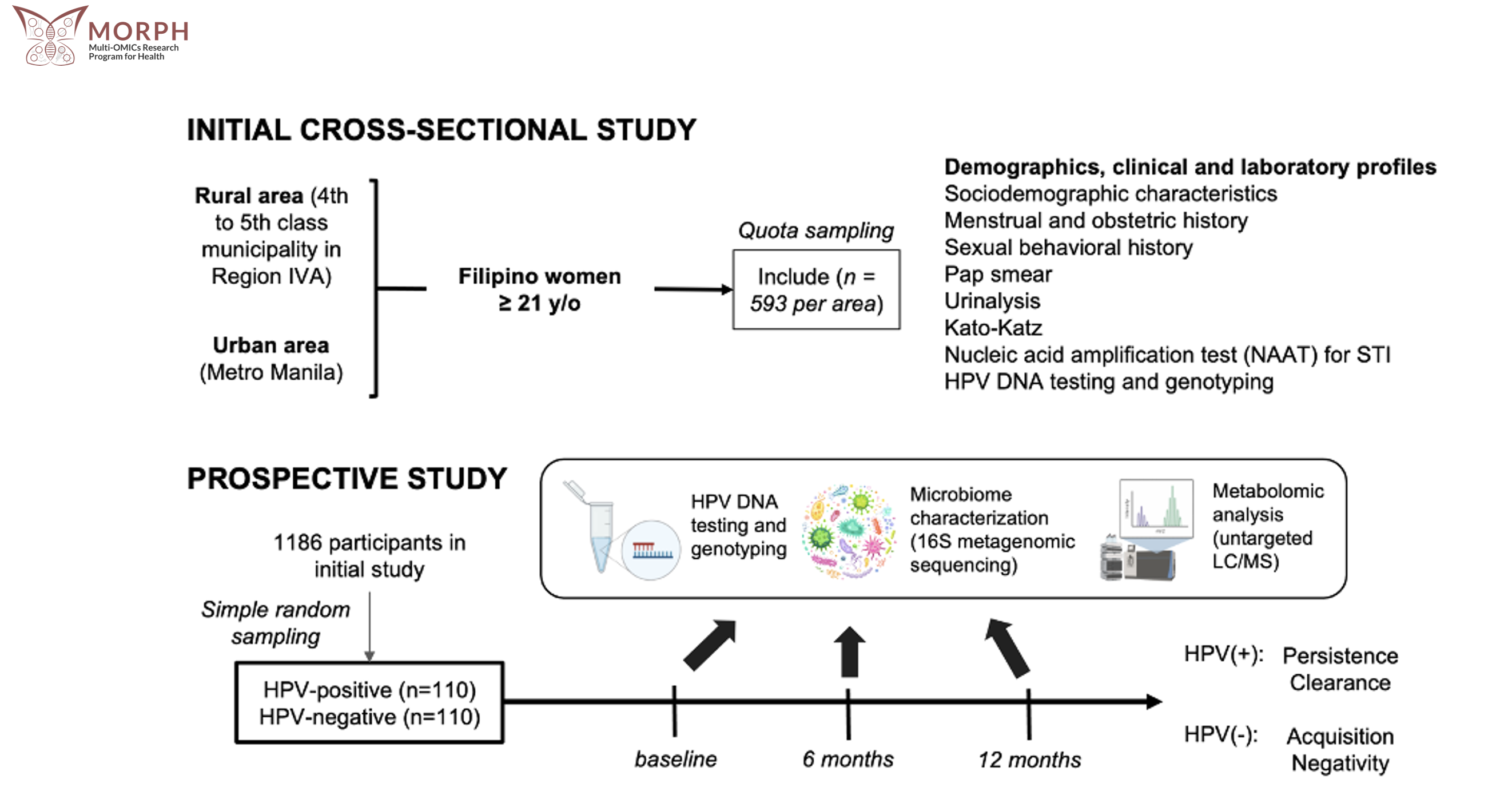
Study Period
January 1, 2022 to December 31, 2024
Collaborators
1. Likhaan Center for Women’s Health, Inc.
2. Nagasaki University School of Tropical Medicine and Global Health
Team Members
| Members | Position | Affiliation |
|---|---|---|
|
Sheriah Laine M. de Paz-Silava, MD, PhD |
Associate Professor 2 | College of Public Health, University of the Philippines Manila |
|
Fresthel Monica M. Climacosa, MD, PhD |
Associate Professor 4 | College of Public Health, University of the Philippines Manila |
|
Ian Kim Tabios, MD, PhD |
Professorial Lecturer, Research Staff | Institute of Biology, College of Science, University of the Philippines Diliman |
|
Clarissa Velayo, MD, PhD |
Associate Professor | Department of Physiology, College of Medicine, University of the Philippines Manila |
|
Ourlad Alzeus Tantengco |
MD-PhD Candidate | College of Medicine, University of the Philippines Manila |
|
Leslie Faye T. Cando |
MD-PhD Candidate | College of Medicine, University of the Philippines Manila |
|
Ryan C.V. Lintao |
MD-PhD Candidate | College of Medicine, University of the Philippines Manila |
|
Glenmarie Angelica S. Perias |
MD-PhD Candidate | College of Medicine, University of the Philippines Manila |
|
Maria Isabel C. Idolor |
MD-PhD Candidate | College of Medicine, University of the Philippines Manila |
Contact Us
Sheriah Laine M. de Paz-Silava, MD, PhD
Project Leader
smdepaz@up.edu.ph
Project Title
Identification of Biomarkers to Distinguish Between Follicular Thyroid Carcinoma and Follicular Thyroid Adenoma
Summary
Among well-differentiated thyroid neoplasms, follicular thyroid neoplasms comprise a diagnostic dilemma. This is due to the difficulty of distinguishing between benign and malignant neoplasms on histologic assessment. The goal of this project is to identify gene targets which can differentiate between a malignant and benign follicular neoplasm by comparing the gene expression of candidate genes and its association with clinical outcomes. Gene targets which prove to be significantly differentially expressed following quantitative PCR (qPCR) will be further correlated with clinical features such as tumor size, metastasis and other clinical parameters to establish clinical relevance. Additionally, genomic profiles comparing mutational distribution of known cancer genes between FTA and FTC will also be described to further characterize the differences between follicular neoplasms. These target genes can be a basis for development of a gene panel or classifiers to decrease the instances of diagnostic dilemma in FTC and FTA, thus limiting unnecessary treatment and improving the care of Filipino patients.
Graphical Abstract
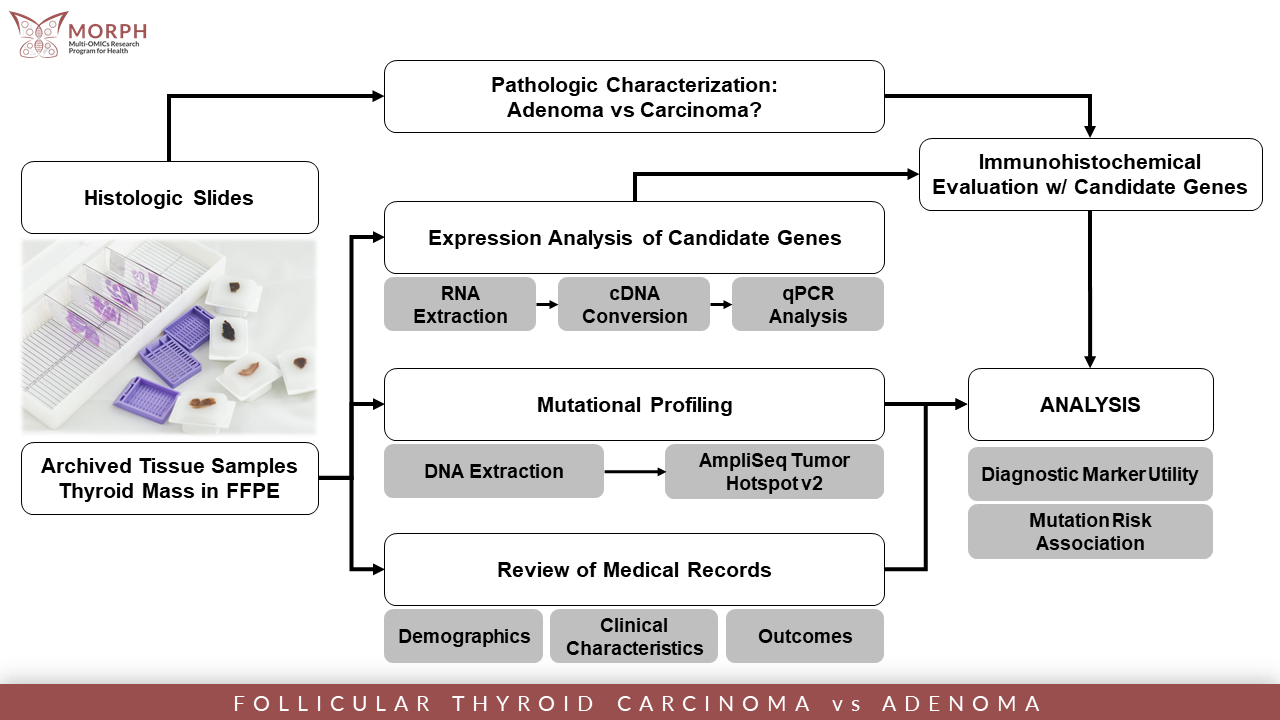
Study Period
January 1, 2023 to December 31, 2024
Collaborators
1. University of the Philippines College of Medicine
2. Department of Laboratories, University of the Philippines - Philippine General Hospital
Team Members
| Members | Position | Affiliation |
|---|---|---|
|
Cecile C. Dungog, MD, PhD |
Medical Officer III | Department of Laboratories, University of the Philippines - Philippine General Hospital |
|
Ruby Anne N. King, MD, PhD |
Assistant Scientist | Department of Science and Technology |
|
Charles Patrick D. Uy MD, PhD |
Medical officer III | St. Lukes Medical Center- Quezon City |
|
Florence Giannina F. San Juan, MD, PhD |
Clinical Scientist | Nutrition Center of the Philippines |
|
John Carlo B. Reyes, MD, PhD |
Supervising Science Research Specialist | University of the Philippines - National Institutes of Health |
|
Eric David B. Ornos, MD |
MD-PhD Candidate | University of the Philippines College of Medicine |
|
Joy Vanessa D. Perez, MD |
MD-PhD Candidate | University of the Philippines College of Medicine |
|
Raniv D. Rojo, MD |
MD-PhD Candidate | University of the Philippines College of Medicine |
|
Jonathan P. Rivera, MD |
Medical Scientist | Department of Laboratories, University of the Philippines - Philippine General Hospital |
Contact Us
Cecile C. Dungog, MD, PhD
Project Leader
ccdungog@up.edu.ph
